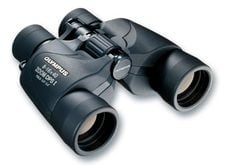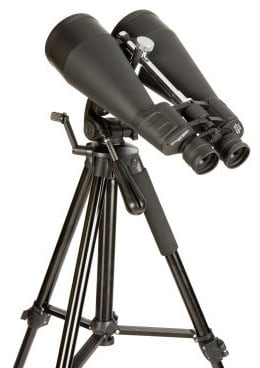Necessary Features to Try To Find in Binoculars for Searching
Necessary Features to Try To Find in Binoculars for Searching
Blog Article
The Significance of Binoculars in Education and Scientific Research: Just How These Optical Instruments Add To Learning and Expedition
The combination of field glasses into academic setups and clinical research is frequently ignored, yet their payment to enhancing empirical abilities is considerable. In self-controls varying from environmental scientific research to astronomy, binoculars offer as important tools that advertise query and crucial reasoning.
Enhancing Observational Skills
In academic and research setups, using field glasses substantially boosts empirical abilities among pupils and experts alike. These optical instruments promote a much deeper understanding of remote subjects, making it possible for users to observe information that would otherwise stay hidden. By using field glasses, learners can analyze wild animals, expensive sensations, and geological developments, promoting a much more profound connection to the subject matter.
Field glasses act as crucial devices in field research studies, encouraging trainees to engage actively with their environment. With boosted observation, they can gather information more efficiently, causing improved analytical skills. This hands-on experience enables the advancement of essential reasoning, as trainees need to analyze what they see and connect it to theoretical expertise.

Bridging Theory and Method
Empirical abilities established with the use of binoculars normally bring about a much more profound assimilation of theoretical expertise with useful application. By engaging in direct observation, learners can transform abstract ideas into concrete experiences. This synergy promotes a deeper understanding of scientific principles as trainees link theoretical frameworks with real-world phenomena.
For example, when studying avian biology, students can apply their understanding of bird composition and actions via the lens of field glasses, observing characteristics such as plumage variant, feeding practices, and migratory patterns. This straight involvement not only strengthens academic principles yet also grows vital thinking and analytical abilities.
Furthermore, making use of binoculars urges students to develop hypotheses based upon their monitorings, thus enhancing their clinical inquiry abilities. They can actively examine these theories in the area, causing an extra experiential knowing setting that promotes interest and expedition.
In essence, field glasses work as a crucial tool in connecting the space between class knowing and fieldwork - Binoculars. They encourage pupils to end up being energetic individuals in their education, encouraging a holistic approach to understanding the natural world and its intricacies. Hence, the combination of theory and method is vital for promoting educated and involved students
Applications in Environmental Scientific Research
Using binoculars in ecological scientific research enhances the ability to observe and evaluate ecological communities with greater accuracy. These optical tools are important for performing area researches, making it possible for scientists to monitor wild animals populaces, examine plant health and wellness, and review environment conditions without disrupting the native environment. Field glasses help with the recognition of types at various distances, enabling researchers to gather important information on biodiversity and actions.
In environmental study, field glasses are indispensable devices for ornithologists studying avian actions and migration view publisher site patterns. They make it possible for researchers to tape-record monitorings over extended periods, adding to useful longitudinal researches - Binoculars. In addition, binoculars play an essential duty in environment assessments, as they allow for the in-depth monitoring of plant areas and their interactions within communities
Ecological educators additionally take advantage of field glasses, as these instruments improve experiential discovering possibilities. Pupils can engage straight with their surroundings, promoting a deeper admiration for ecological systems. By incorporating binoculars right into curricula, important link trainers can motivate the future generation of ecological researchers.
Role in Astronomy Education
The use of binoculars in astronomy education offers an available portal for trainees and fanatics to check out celestial phenomena (Binoculars). Unlike big telescopes, binoculars are portable, user-friendly, and fairly affordable, making them a suitable introductory device for observing the night skies. Trainees can conveniently involve with the cosmos, fostering a hands-on discovering experience that enhances their understanding of huge concepts
Binoculars enable individuals to observe a variety of holy things, consisting of the Moon, worlds, and celebrity collections. Importantly, field glasses offer as a bridge to much more complex expensive tools, supplying foundational experiences that can spark much deeper interest in the area.
In academic setups, directed binocular sessions can advertise group cooperation and discussion, improving the discovering experience. The shared experience of observing celestial spheres can cultivate a feeling of neighborhood among students. On the whole, field glasses play a crucial duty in debunking astronomy, making it approachable and appealing for people at all levels of education and learning.

Motivating Curiosity and Inquiry
Binoculars not only assist in the observation of holy sensations yet additionally spark a sense of inquisitiveness and inquiry among pupils. By giving a closer navigate to this website take a look at far-off objects, binoculars motivate learners to ask questions and explore the environment around them. This tool changes passive discovering right into an active, appealing experience, promoting a much deeper understanding of clinical principles.
When pupils use field glasses to observe wild animals, landscapes, or huge things, they establish observational skills that are crucial for scientific inquiry. The act of concentrating on certain information prompts them to develop theories, conduct examinations, and draw final thoughts based upon their observations. This process not just improves their important believing capacities yet additionally supports a lifelong enthusiasm for exploration.
Additionally, binoculars can link the space between academic expertise and real-world application. Ultimately, the use of field glasses in educational setups offers as a catalyst for curiosity, empowering pupils to go after understanding with enthusiasm and fostering a sense of wonder about the world around them.
Verdict
In summary, binoculars serve as essential tools in education and learning and clinical research, considerably boosting empirical abilities while bridging the gap in between academic understanding and functional application. Their diverse applications in areas such as environmental science and astronomy highlight their value in promoting curiosity and query amongst pupils. By assisting in in-depth examinations of distant subjects, field glasses not only influence the future generation of researchers yet additionally cultivate an extensive admiration for expedition and the scientific method.
Report this page